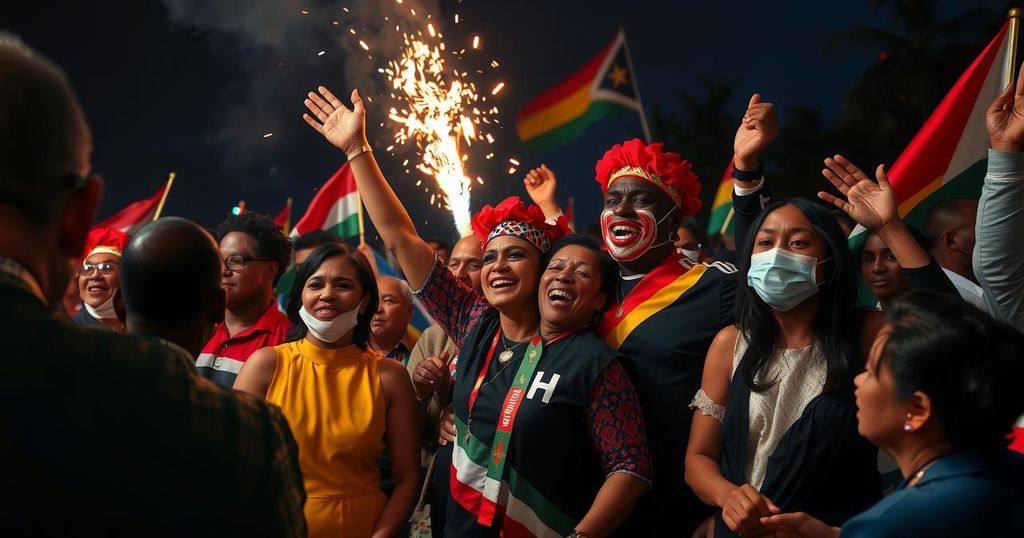Mauritius’ opposition coalition achieved a historic electoral victory, winning all parliamentary seats. Prime Minister Pravind Jugnauth conceded defeat amid corruption allegations against his government. Navin Ramgoolam, previously prime minister, is set to return to leadership as the country elects a new direction, signaling widespread public desire for political change.
In a decisive electoral victory, the opposition coalition in Mauritius has won every seat in the nation’s parliament, marking a significant swing in political power away from the ruling government. The recent elections saw the governing coalition led by Prime Minister Pravind Jugnauth completely sidelined, as they failed to secure any of the 62 directly elected seats. With results indicating the loss across all 21 constituencies, Jugnauth, who has been in office since 2017, acknowledged the overwhelming defeat before all votes were officially counted. His party, the Militant Socialist Movement, had been marred by allegations of corruption, which likely contributed to the electorate’s choice for change. Navin Ramgoolam, the leader of the victorious Alliance for Change coalition, is set to return as prime minister, having previously served two non-consecutive terms from 1995 to 2000 and from 2005 to 2014. This election represents a significant political shift for Mauritius, which has been recognized for its stable democracy and robust economic foundations in finance, agriculture, and tourism since its independence in 1968. With more than one million registered voters participating in the process, the results underscore the electorate’s desire for new leadership and a fresh direction for the nation.
Mauritius, located around 2,000 kilometers off the eastern coast of Africa, has long been considered one of the continent’s most stable democracies. Since gaining independence from the United Kingdom in 1968, the country has successfully developed its economy, which is heavily supported by the finance, tourism, and agricultural sectors. The recent election signals a major transition in governance, with significant implications for the country’s political landscape, especially against the backdrop of recent corruption allegations that have plagued the ruling party. This election marks the 12th since independence, indicating a rich tradition of democratic processes within the nation.
The remarkable victory of the opposition coalition in Mauritius serves as a clear indication of the electorate’s demand for change and accountability in governance. With Navin Ramgoolam poised to assume the prime ministership once again, the nation may experience a shift in policies and renewed focus on transparency and integrity within its governmental framework. As Mauritius continues to navigate its political future, the implications of this election will undoubtedly resonate throughout the region and beyond.
Original Source: apnews.com






